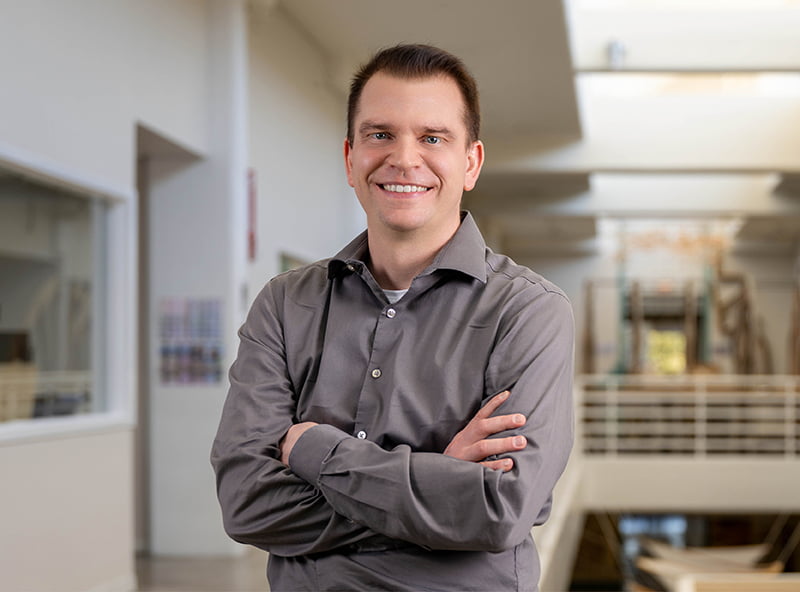So my program is actually a non-thesis track. It’s all online. I was joking about this with the other two candidates during our photo shoot because they were both showing their projects. I think they’re both in architecture, which is really cool. And here I am, this lowly little teacher over here, and I didn’t have any of those big projects to work on. Like I said, it’s non-thesis.
I am thinking about maybe going for a PhD. If I do—and this is on the record—I’d love to pursue a PhD in microbiology, specifically human microbiomes. I’m currently taking Dr. Dillon Park’s Microbiomes, Health, and the Human Environment course, and his research is just incredible. It’s all about the microbes living in and on you, what they actually have to do with your health, and how it’s a synergistic relationship. Without them, we might not even be here, and we certainly wouldn’t be as healthy as we are without these microbes—ones we try so desperately to kill, get rid of, and avoid. But there’s so much research now, especially over the last 20 years, that’s been shifting this perspective. It’s slowing things down and asking, “Can we live with them? Can we even utilize them to naturally combat infections and other health issues?” If I did go for a PhD, that would be the one.
On that note—and this ties into my current job—I currently teach English. My degree situation is kind of unique. I’ve been working at Dallas College, formerly Dallas Community College, for the last three years. I’m an academic English coach, and that’s what I’ve been doing for three years. I work with students on all types of academic writing, whether it’s Composition I and II, or any class with a writing component—government, philosophy, history, it doesn’t matter. I work with those students. I also work with ESL students to build their English skills—grammar, sentence structure, pronunciation.
Recently, I got hired as ESL faculty at Dallas College. That’s the new position I started this spring semester. I’m teaching three classes, all eight weeks. Yesterday was actually my last class for the semester, so I’ve been wrapping up grades. After spring break, I’ll be teaching four ESL classes, all different levels.
Where this ties back in is I’ve really been thinking about pursuing a PhD in English. I’ve been looking into several of UT Arlington’s programs—whether it’s a straight English degree or one of their applied linguistics tracks with TESOL (Teaching English to Speakers of Other Languages). So when people ask me about my biology degree and what I’ve been studying for six years, they always look at me funny. During my faculty job interview, they were like, “So you’re going for a master’s in biology—how does that tie in?”
Well, I’ve been volunteering as an ESL instructor for years. As soon as I started college during my first semester at Dallas College—about six years ago—I started volunteering as an ESL instructor for adults just to get some experience. I absolutely fell in love with it. I knew I wanted to teach. I knew I wanted to teach adults. Volunteering was my way of building up experience, and I’m confident that those years of volunteer work are what helped me get this faculty position, even though I don’t have a degree in English.
